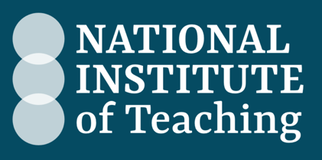|
31/1/2024 0 Comments Interview with Fiona Harvey, Deputy Head (Scholarship) at Colyton Grammar School “I believe as school leaders, we must challenge and be positive in promoting teaching as a career that is brilliant, rewarding and a worthwhile choice.” It feels fitting that Fiona Harvey is the Deputy Head at Colyton Grammar School with special responsibility for scholarship. Fiona started her teaching career at this high-achieving school back in 1999 as a Newly Qualified Teaching (as they were then called) in her first Teacher of English post and where she has been proud to grow and evolve to her current post on the Leadership Team. A West Country girl, Fiona grew up in Cornwall and graduated in English at the University of Exeter. Colyton is the Lead School for the Colyton Teaching School Hub – one half of SWIFT, working in partnership with Kingsbridge Community College. Scholarship is an essential part of school life at Colyton that has twice been judged Outstanding by Ofsted – the most recent inspection being in November 2022. As a school, they encourage their students to step out of their comfort zone and to take on new challenges and “to adapt to new situations, solve new problems and acquire new domain specific information,” which is reflected and modelled by their teachers in their continual learning. It was with this in mind that we invited Fiona to share her insights into her role as one of our experienced SWIFT Facilitators for the National Professional Qualifications (NPQs). 1. What do you find to be most rewarding as a National Professional Qualifications (NPQs) Facilitator? There are three key aspects that I find most rewarding as an NPQs Facilitator. Firstly, it gives me the opportunity to stay updated with the most current educational research so that I am constantly refreshing my ideas and teaching strategies through the materials. Secondly, I think it is a beneficial way to be very outward-looking and I get lots of ideas from the participants on the course about what they are doing in schools, what works, what perhaps has not worked as well, and which I can feed into my own practice. And then I think thirdly, it is very rewarding to get to know and support aspiring leaders. Too often, the media can present an image of teaching in quite a gloomy way. But in my role as a Facilitator (and for the Programme Members themselves) you get to meet aspirational, passionate, enthusiastic professionals who are truly dedicated to improving student outcomes. 2. How is this impacting on your current role? I think being a Facilitator encourages you to be constantly reflecting on your own leadership and practice. During many of the seminars we are asked to share our experiences from our own leadership positions and to provide real life examples of what is working. But also, what has not worked, and this means that I am constantly revisiting and learning from my previous experiences. Moreover, when we are talking about, for example, the Education Endowment Foundation’s (EEF) guidance reports, it is a good reminder for me to consider how closely we are following the evidence-based approaches. So, it is impacting positively on my own leadership abilities and how to bring about positive change. I think it also helps with the professional development that we offer in school. Not only for those who are undertaking an NPQ, but more widely within our own teaching and learning strategy or when we are thinking about developing people, we are always able to look at the NPQ programmes and materials. I think also perhaps previously there has been a perception that when you move on to the leadership team, you forget what teaching is about or you can sometimes get distracted by other priorities. Being a Facilitator means that I always have teaching and learning at the heart of what I do. 3. What do you consider to be the main benefits of the NPQs for school leaders? I think it is important to make your staff know that you are thoroughly invested in them. That you value them, and that you wish to provide them with opportunities to develop their careers, and to develop their understanding of different roles that are available in different career routes. Also, making sure that you recognise they wish to grow and that you see their true potential; there might not be a position opening up soon within their current school, but that you still want them to develop their experience, so they are ready for future leadership roles. I think another benefit of the NPQs is that it is sustained over time. It is not just a course that you send people on and then they come back to school and do not have the time to think about it. Their learning should be ongoing and should give them the opportunity to develop their thinking, and the chance to take on a departmental or whole school project. This provides not only leadership opportunities, but also, when they are ready to apply for their next steps, they have evidence of change, and of something they have done and can talk about the impact. So, I think it is a question of supporting their career progression and making sure that they are feeling refreshed and invested in. I also benefit by speaking to colleagues from other schools and finding out what they are doing. I can build on these relationships, and I enjoy getting to know them in the breakout rooms and at the conferences. I always come back with ideas of how we can make improvements at my school. 4. What do you perceive to be the biggest challenge for school leaders? I think there are two significant problems that the teaching profession is facing. Firstly, the (ongoing) challenging financial times and dealing with the constant cuts to the school budget and linked to this, secondly, is the retention and recruitment of teachers. We know that teacher training courses are not filling up, and this is creating uncertainty about where our future teachers will come from. Also, managing the media drip feed of criticisms and a lack of support for the profession. I believe as school leaders, we must challenge this, and be positive in promoting teaching as a career that is brilliant, rewarding and a worthwhile choice. I think the commitment to professional development is a way of tackling both of those issues, that can be cost effective and impactful, helping to retain our teachers and to make sure that they feel valued. 5. What would you ideally like to see in future NPQs?
To me, the NPQs are generic and some of the materials covered across the different NPQs are quite similar. If I had to say one thing, it might be to make them more specific to their particular strand. For example, for the NPQ in Leading Teaching, there could be a greater focus on challenge, supporting the more able that is not only about bringing about change, but is specific to teaching in the classroom. Also, for the Behaviour and Culture, there could be more about developing character and resilience, which we know are important issues in schools right now. So, I would think about the key issues within each of the NPQs and to incorporate an aspect that is more content driven, rather than focusing mostly on leadership skills. I would also support more in-person sessions, as well as the online part of the programme. The face-to-face sessions and conference days feel real, and there is always a super buzz because colleagues are sitting together with opportunity to discuss beyond the seminars; in downtime the conversations are still going, which can get lost in the online seminars. I am certainly very committed to my role as a NPQs Facilitator working with SWIFT and I look forward to my continued involvement in the programme delivery. We thank Fiona for her insights into the role and thank her for her dedication and wish her every continued fulfilment in her role as NPQs Facilitator. Interview by Jude Owens, SWIFT Executive Assistant
0 Comments
25/1/2024 0 Comments SWIFT Events Newsletter | Issue 7 This issue includes a featured article and some highlighted programmes, courses and events from our partners to support your professional development and enhance the work of your school. Simply click on the booking link to the course or event you are interested in to get more details or book straight on! Featured in this issue we have: SWIFT Spring Leadership Forum | Online We are delighted to announce details of the SWIFT Spring Leadership Forum, taking place on Thursday 8 February, 1500-1700 online. Please click HERE to view more and register. This term's line up is full of high quality presenters, covering a range of key educational priorities. Highlighted Programmes: · AQA Feedback Events · Professional Communities · Primary Subject Leader Briefings · Supporting Students with High Academic Potential | One Day Programme · Read to Succeed | A Cornerstone English Hub Conference · Events for your diary  You know what they say about strawberries in December. But consider tomatoes in January. Bright, shiny, happy red tomatoes. I was reminded when I saw these tomatoes on my recent visit to our sponsor Educatering of all that is joyful about fresh food and to think that these tomatoes are going into schools to feed our bright, shiny, happy children and young people and staff. Part of the Goosemoor Group, Educatering are currently working with 80 schools spanning Bristol to Cornwall and all the counties in between. No wonder the team are quite rightly proud of their achievements over the past two and a half years in providing a complete school catering service. And they have a waiting list! It is pleasing that more schools are set to benefit with planning underway to onboard the next eight new schools due to join the Educatering family before Eastertime.  This close-knit Devon-based family business has come a long way in nearly 70 years, growing from a farming and fruit and veg business to the successful foodservice and limited company that it is today. Yet it is endearing that true to their roots, they still provide homegrown parsnips and swedes to local Tesco’s. But then, Goosemoor makes a virtue of joining-up their business operations and also providing a joined-up catering service to schools in sourcing ingredients, bespoke menu planning, compliance and even relief catering team staff. Inside what I came to think of as the Goosemoor Tardis, there is a labyrinth of walk-in freezers, fridges and dry stores, including a charcuterie section for their hotel and restaurant supplies. The on-site butchery prepares meat products for the school kitchens and perhaps, not surprisingly, sausages, are one of the top menu favourites. Quality is all. Rather than going for bulk and the cheapest ingredients, the team take care to source the best ingredients from local suppliers, and work with a fish and meat and fruit and veg buyers and of course, the essential dry ingredients suppliers; many of whom are from trusted multi-generational families, testifying to the loyal longevity of working together with Goosemoor and because Educatering cut out the middle man, they can maintain realistic and fair pricing. With a genuine nod to sustainability, local is at the heart of their supply chains and economies of scale allow Educatering to provide schools with the best price and quality. Sourcing is organic and schools know that they can request any extras. Drinks are a new feature, especially for Secondary and Sixth Form schools. Part of caring includes attention to allergens so that the children and staff eating Educatering food are not only happy and healthy eaters, but safe eaters too. Rigorous ingredient checking is integral and constant to the operations overseen by dedicated team members and by using Catercloud software for menus and recipes, which are adjusted when necessary. Schools are kept informed with parents and carers able to use a QR code on the menus to review ingredients. Technology and a diligent eye for detail ensures this duty of care. Because the Educatering team clearly care and believe in what they do. From my time in the Goosemoor Tardis, I could see the smiley can-do attitude across the team that totals nearly 130 employees in this complex operation that effectively works around the clock apart form a day of rest on Sundays. Lorries start pickups from 1 o’clock in the morning and professional pickers are kept on their toes preparing for deliveries to schools in the dedicated Educatering vans throughout the day. There’s a thoughtful functionality across the business and even the pigs at a local farm benefit from any fruit and veg waste. The Team of Area Managers work closely, with their ten schools each, on bespoke menu planning and have even been known to step into the school kitchen to help out during staff absence. Educatering can provide schools with the support of relief chefs who understand the onboarding procedures and of course, the food. So schools feel confident their temporary chef understands the menus; whilst Educatering oversees the DBS checks, insurance and other admin. The chefs enjoy the variety of working in and supporting different schools, as well as the sense of belonging as an Educatering employee. It obviously works. On average, three Educatering chefs are placed in schools every day to cover sickness and other inevitable staff absence when school kitchens need all hands to the plough. The proof is certainly in the pudding. With Educatering food on the menu, kitchens are reportedly all the busier with more and more children and staff choosing to eat Educatering’s food. Whenever Director, Jamie Walsh visits schools and speaks to the children in the dining hall, he is always delighted to hear that they are enjoying the food with genuine gusto. Teachers also comment how the children in the afternoons are calm and quiet and ready to learn. The joy of a hearty healthy (warm) meal. And with the ongoing cost of living crisis hitting many families hard, we know that this cannot always be taken for granted for all children. It is heartening to know that this special foodservice company is playing its part to provide a connected and caring service to schools. We thank Educatering for working with us and for the service that they are providing to schools across our region. It is this combined caring working together that I can believe is a particular strength of the Educatering Team who put their company values into their food and operations and I thank them for welcoming me on my visit. We wish them every continued success. Report by Jude Owens, SWIFT Executive Assistant
11/1/2024 0 Comments SWIFT Events Newsletter | Issue 6 This issue includes a featured article and some highlighted programmes, courses and events from our partners to support your professional development and enhance the work of your school. Simply click on the booking link to the course or event you are interested in to get more details or book straight on! Featured in this issue we have: SWIFT Spring Leadership Forum | Online We are delighted to announce details of the SWIFT Spring Leadership Forum, taking place on Thursday 8 February, 1500-1700 online. Please click HERE to view more and register. This term's line up is full of high quality presenters, covering a range of key educational priorities. Highlighted Programmes:
10/1/2024 0 Comments If you were wondering what it's like to be a supply teacher with Exeter Supply PartnershipIf you are considering supply teaching to suit your work/life balance or to refresh your skills before taking on a permanent post, it will be helpful for you to read Katie’s experiences of working for Exeter Supply Partnership (ESP).  For Katie, education has always played an important role in her life, and after finishing her Master’s in Education and gaining her teaching certificate, she taught fourth grade, and then two years later, second grade in a mountain town in Northern Arizona. After moving from Arizona to England, Katie joined Exeter Supply Partnership in 2018 and was soon offered a temporary contract at a local primary school in Exeter. Katie returned to ESP in 2021 and again was soon snapped up for a short-term contract before returning again in September 2023. Why did you choose to become a supply teacher? After moving to England, I volunteered at a primary school in Exeter to gain experience of working in the classroom over here. The school then advised me to apply to Exeter Supply Partnership so that they could book me for their school as a supply teacher. Why did you choose Exeter Supply Partnership? Because ESP is a not-for-profit organisation and the school, I volunteered with recommended ESP. What is your favourite aspect of being a supply teacher? I have enjoyed working as a primary supply teacher. I love the fact that you can go to different schools and see how they operate, and also gather lots of ideas. I have a note book that I use to record new ideas. I was at a school the other day and the teacher had planned an incredible lesson. I asked the school if I could take the planning sheet with me to use elsewhere as a resource. Supply is also a great way to meet other educators. What are your favourite/most useful resources to use? I have a subscription to Twinkle that I use occasionally and I always take a couple of story books with me that I can use as the basis for a lesson. How do you prepare for your bookings? I always have a look at the school documents ahead of attending such as the behaviour policy, marking policy and safeguarding policy. In my note book I have a section where I ensure I have the start and finish times, the name/s of the Designated Safeguarding Lead and any other useful information. Once I have attended a school, I will add any useful information to my book that could be helpful for my next visit. What approach do you take when you are attending a new school? I will look at the documents and policies for the school. I will also look at the school website, which will often give you a feel for the school and how they operate. Sometimes when you arrive at a school, they may want you to cover a different age group than originally planned, so it is important to always go with a ‘can do’ attitude and an open mind. Would you say supply teaching is an enjoyable/fulfilling experience? Yes, I love it! I like going to new schools and meeting new groups of children. Some people might think that supply teaching is lonely, however I do not find this to be the case as staff in schools are really friendly and I also find that there are very often other ESP teachers working in the same school as me. What advice would you give to a teacher who is new to supply teaching/ considering supply work? I would say that it is different than having your own classroom, so make sure that you are flexible and take every day as a new adventure. If one day does not go so well, give it another go. Always be open for new experiences and your next adventure. How do you manage the uncertainty of supply work and the possibility of not having work on some days? This can be tricky; however, I have been very fortunate in that I have been booked on most of the days that I have wanted to work. On the occasions that I am available for short notice bookings, I get up early so that I am ready for a booking. I always try to have a plan ‘B’ so that if I do not get a booking, I will have something else to do with the rest of my day. Would you recommend ESP to other teachers? If so, why? I could not recommend it highly enough! I am always recommending ESP to others if they are thinking of doing supply teaching. The ESP team have always been the most welcoming and caring people to work with; they take really good care of us and are always so supportive. Exeter Supply Partnership (ESP) is a not-for-profit organisation linking supply teachers and their next job. If you have QTS, a passion for teaching and a desire to move into supply work then ESP are here to help. Perhaps you are newly qualified and looking to gain experience before joining a school full time. Maybe you’re looking to slow down and ease into retirement. Or possibly a parent trying to juggle work with a busy family life. Whatever your reasons may be, supply teaching offers flexibility and variety we we’d be delighted to help match you up with local primary schools. “ESP have become my ‘go to’ first choice for supply be it a last-minute request or planned ahead they couldn’t be easier to contact or more helpful. We can rely on quality teachers at the best rates. I would and regularly do recommend them to teachers and schools alike.” (School) Exeter Supply Partnership is a Community Interest Company set up by the member schools of Exeter Consortium, one of SWIFT's Delivery Partners, who also manage and inform the running of the organisation.
 “I enjoy nurturing partnerships and I am continuously reminded of their importance in every we do.” As we embrace this new year as a time of renewal and revitalisation and as the culmination of the first four-years cycle of Teaching School Hubs, it seemed opportune to check in with our Executive Director, Martin Smith to reflect on his role in leading the Colyton and Kingsbridge Teaching School Hubs, as you will know as SWIFT (South West Institute for Teaching). Martin started his career as a Teacher of History in Herefordshire and became an Advanced Skills Teacher early in his career, working as a Teaching and Learning consultant for Gloucestershire Local Authority. For four years he was Deputy Head of a rural 11 to 18-years school in Herefordshire, before becoming a secondary Headteacher in East Devon for eight years. As the backdrop to his current leadership, Martin led the formation of the Dartmoor Teaching School Alliance and in 2020 he was appointed founding Director of Teaching Schools South West (TSSW) as one of six Department for Education’s test and learn Teaching School Hubs with Kingsbridge Community College the lead school. A year later, with the roll-out of 81 further Teaching School Hubs as national centres of excellence, Martin orchestrated combined of operations with the newly formed Colyton Teaching School Hub, with Colyton Grammar School the lead school to create SWIFT. 1. What did you anticipate from your role of leading the Test and Learn Teaching Schools South West (TSSW)? I anticipated that there was a great opportunity to create a system for schools that was more joined-up with less duplication, and less overload of providers delivering similar programmes. This, of course, was mainly the professional development Early Career Framework (ECF) programme, before the launch of the reformed National Professional Qualifications (NPQ's) and before the Department for Education’s Golden Thread of professional development. My role was to focus on bringing together partners who were experienced in making significant contributions in the area and included the former Teaching School Alliances and Multi Academy Trusts who were emerging onto the scene and growing rapidly. As part of my role, I anticipated bringing together the different components into a coherent partnership framework. 2. What do you believe to be the most important function for Teaching School Hubs and has that changed over the past four years? The most important function is to provide high-quality professional development for teachers and leaders because we know that if teachers and leaders engage in high-quality professional development, it has a positive impact on the quality of what they do in the classroom and the outcomes for young people. Teaching School Hubs also have a key role to play in the teacher recruitment and retention agenda. Recruitment, by improving initial teacher training (ITT) and making it accessible to more people. Retention, in running high-quality Early Career Framework programmes that support new teachers, and inspire them to stay in the profession for longer, and to provide a pathway for more experienced school leaders through the NPQs so that this journey of growing and developing continues beyond the first few years of teaching. Therefore, well trained and supported teachers are more likely to stay in the profession for the longer-term and Teaching School Hubs are making an important contribution to the recruitment and retention of teachers. It is also important to create a coherent and accessible professional development structure for Schools and Trusts. One of the drawbacks of the previous iterations of Teaching Schools was working with a large and disparate number of Teaching School Alliances – along the lines of 14 across Devon, Plymouth and Torbay, all of which were providing their own professional development and initial teacher training and as a Teaching School Hub we wanted to create a clear and accessible marketplace for schools to access high-quality professional development. A clear marketplace incentivises and supports schools to engage in professional development. 3. What has been the most constructive learning point to date in your tenure as Executive Director of SWIFT? It is more of a validation and something that is constantly validated for me is the importance of partnership in building long-term high-quality partnerships based on strong relationships with trust, a genuine collaboration, sharing and a generosity between partners. I enjoy nurturing partnerships and I am continuously reminded of their importance in every we do. 4. What do you find to be the most personally rewarding for you in the role? Personally, I have always enjoyed seeing people flourish in their roles and organisations and knowing that as Teaching School Hubs, we are enabling colleagues across the profession to take on new opportunities. Whether it is to design an ITT curriculum, become an ECF Mentor, lead ECF Mentors or facilitate an NPQ. I think that these opportunities across the partnership are truly inspiring and we know that they can make an important difference to people's professional lives. In addition, we now have a not-insignificant SWIFT Central Team of ten people and it is very gratifying to see them grow and develop as individuals and as a team to embrace challenges and celebrate successes. 5. What would be your vision and hope (s) for the next four years of Teaching School Hubs? If we are successful in our re-designation for the next four years, I think my vision will largely remain the same to create those high-quality pathways for teachers from initial teacher training through to Executive Headship and to continue to develop and ensure that these opportunities are meaningful and relevant. We always want to give schools in the South West the best of regional, national and available evidence. We have always believed very strongly in our vision to give South West leaders the best opportunities available and we are committed to this mission that continues, not least with the exciting opportunity we now have with SWIFT Teacher Training to increase the number of teachers entering the profession across our area. There are many great ITT providers within our region and we want to work alongside those existing providers to support potential trainees with the requisite skills and commitment who wish to get into teaching. I also hope that we can adapt to the changing educational context towards larger Multi Academy Trusts (MATs) and at a practical level, as Teaching School Hubs, we are very keen to be responsive to the needs of growing MATs and offer more personalised approaches to ITT and NPQs that allows them to access the benefits of a national programme, but at the same time put their own Trust stamp on the experience. We thank Martin for his reflections and his continued leadership of SWIFT. Interview by Jude Owens, SWIFT Executive Assistant In this first issue for 2024, Associate & Strategic Leader of Teaching & Research Schools | Education South West, Roger Pope CBE presents reasons to celebrate at the start of this new year with a Christmas gift that might have gone unnoticed:
“It was the gold standard report comparing international standards. It showed that England is now one of the highest performing western countries in education." At this significant point, we thought that it was opportune to interview Martin Smith, Executive Director of SWIFT and you can enjoy reading his reflections on Teaching School Hubs. Find out more about our collaboration with the National Institute of Teaching Research Project on Early Career Framework (ECF) research into mentoring in small schools in rural and coastal communities and how you can participate. With a week to go before the application window closes for the National Professional Qualifications (NPQs) Spring Cohort, you can read more about the excellent pass rates to date and what contributes to this success. Kingsbridge Research School enlightens us on moving from expert to novice based on the Education Endowment Foundation’s Modelling Framework. Finally, we wish you a very happy and healthy 2024. 3/1/2024 0 Comments SWIFT Collaborates with the National Institute of Teaching on a Research ProjectWe are pleased to start this new year collaborating with the National Institute of Teaching (NIoT) on a research project.
The National Institute of Teaching (NIoT) aims to root their research and programmes in schools. They seek to design research that addresses areas that teachers and leaders care most about and feeds directly back into programmes to strengthen training and development. SWIFT aims to create high-quality opportunities for staff to learn, develop and connect so that all children, especially the disadvantaged, achieve the best educational outcomes. This year, the NIoT and SWIFT are collaborating on a research project to learn more about the Early Career Framework (ECF) programme delivery, and how the ECF can be designed for schools in rural and coastal communities. Purpose of the Study Early evaluations of the ECF have shown that Early Career Teachers (ECTs) hugely value the support from Mentors. However, workload and balancing responsibilities for ECT Mentors remains a challenge (DfE, 2023). In addition, some schools in rural and coastal communities are reporting particular challenges in delivering aspects of the ECF. For example, schools with small staff bodies may find it more challenging to provide adequate time for Mentors off-timetable to meet the demands of the role. For some schools, the distance required for ECTs and Mentors to travel to in-person training may require greater time outside of school. However, little is known across the country, and more evidence is needed in order to understand the types of approaches that might be needed to deliver the ECF in different geographic locations. The Aim of the Study The intention is to support ECF design for schools in rural and coastal communities, with an intention to build towards a larger study to pilot promising strategies in order to:
How will the findings be used? This research will be used to tailor the NIoT’s own ECF design to be suited to different geographic locations, and to make sure that schools, ECTs, ECT Mentors and school leaders have the support they need to deliver the ECF. There is also the intention to build towards a larger study to pilot promising strategies. The NIoT will also use the research to make recommendations to the sector, and for awareness-raising and advocacy to shape future policy revisions. How can I get involved? If this study sounds like something you are interested in, we would like to hear from you! The study will run from January to October 2024 and will involve a national survey, and qualitative research with selected schools in the North East and South West regions of England. Research Interviews The NIoT are currently looking for schools to take part in the qualitative research strand between March to May 2024 and would like to interview six to ten Early Career Teachers (ECTs), ECT Mentors, Induction Tutors and/School Leaders across a range of schools in the North East and South West England. Interviews will last for about 45 minutes, and a member of the NIoT Team will come to your school in person at a time that is convenient to you. There is no obligation for any other member of staff in your school to take part, if only one staff member is interested and each individual who participates will receive a £10 book token as a thank you for their time. Advisory Group In addition, they are also looking for a small number of teachers and leaders to participate in an advisory group for this study. This will involve two to three sessions throughout the year, held remotely and at a time agreed with the group, depending on availability. The group will guide the study team in making sure the findings are useful, and will share them in the most impactful way. We welcome your interest in participating in the research or joining the advisory group. By the National Institute of Teaching and SWIFT Team |
SWIFT News
|
SPONSORED BY
Join us, be a part of our SWIFT community |
© COPYRIGHT 2022 SOUTH WEST INSTITUTE FOR TEACHING SWIFT. ALL RIGHTS RESERVED | Website by brightblueC
VIEW OUR PRIVACY NOTICES | VIEW OUR COURSE T&CS
VIEW OUR PRIVACY NOTICES | VIEW OUR COURSE T&CS











 RSS Feed
RSS Feed





